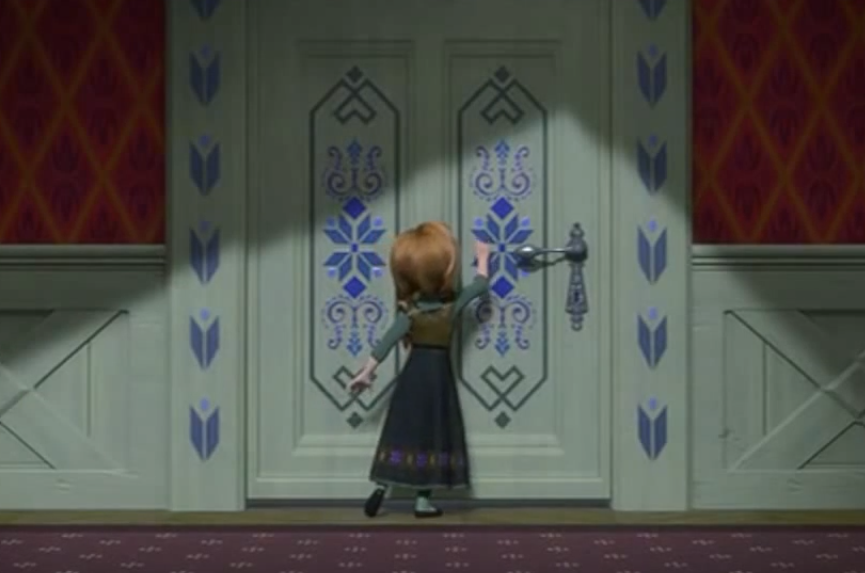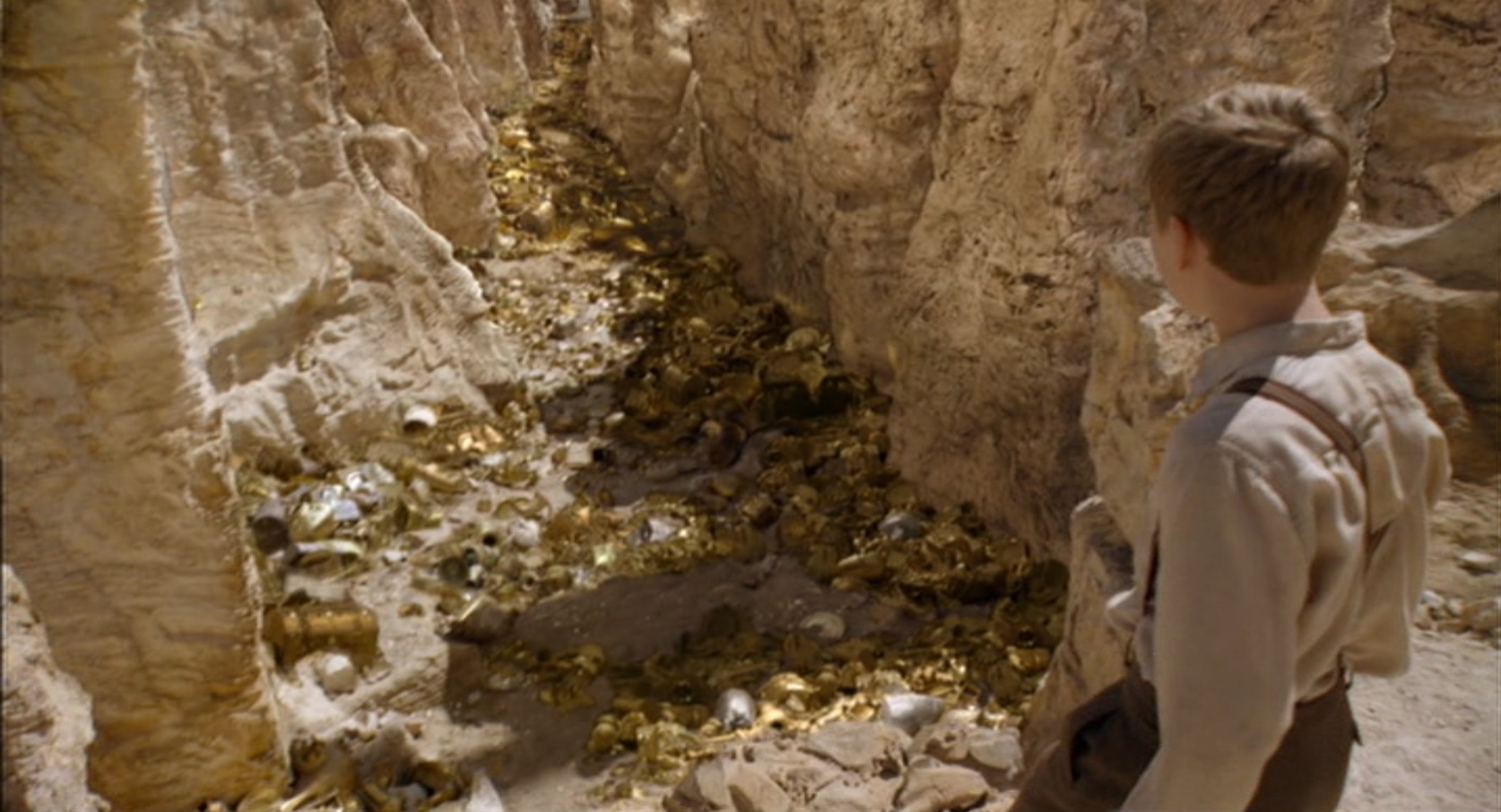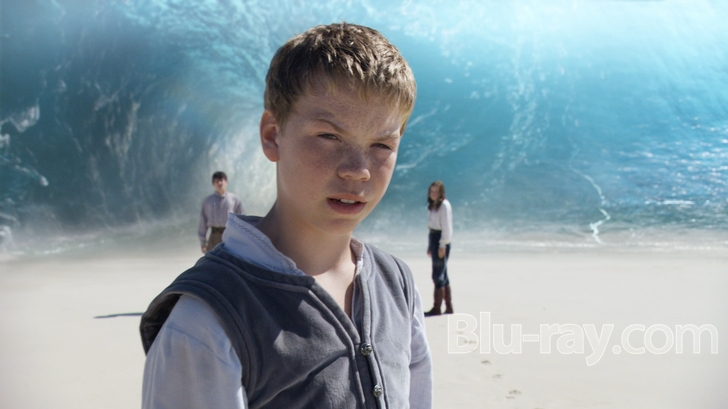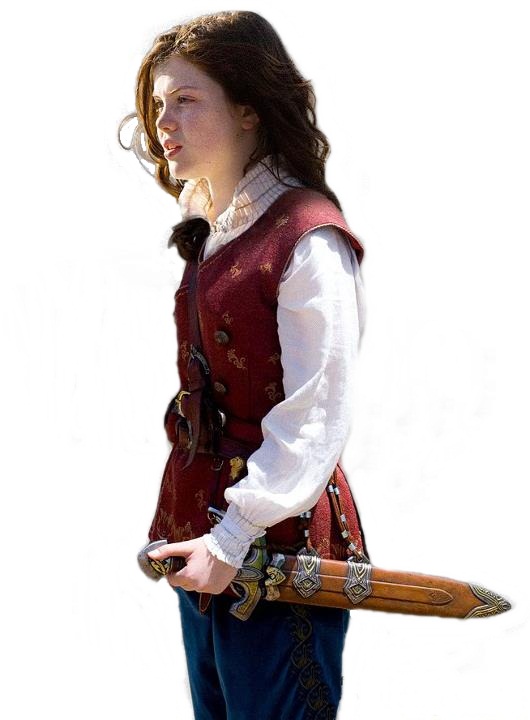We all know the story, and we all know the songs. Even though the movie came out years ago, we still see the dolls, posters, toys, dresses, and other products everywhere. Of course, I'm talking about Frozen.
 (Image from https://www.pinterest.com/pin/486177722245045988/)
(Image from https://www.pinterest.com/pin/486177722245045988/)
Though it may be hard to look past the message of "women empowerment" that this movie is supposed to teach, I want you to try. The message I see when I watch this movie is the same one I see when I read a gospel. If you're willing to bear with me, I'd like to wrestle this very secular movie and turn it around to glorify God. So let's go!
To start, I'd like to define what I see different characters and aspects represent. First, there's Anna.
Anna represents Jesus, which will be explained further as we walk through the story.
Second, there's Elsa.
Second, there's Elsa.
Elsa represents each person in Creation. In short, each one of us.
Third, there's Elsa's power over ice and snow. To me, this represents a couple different things throughout the plot: our freedom as children of God, then our sin and our fear, and the lies of the enemy. I'll let you know when it represents what.
The story opens up to two sisters playing together and loving each other. Mankind and Jesus hanging out before sin gets in the way.
Elsa is doing what she was made to do: make beautiful things with her snow powers, and Anna is celebrating her gifts with her. This is the part of the story when Elsa's powers represent freedom. But then Elsa hurts Anna with them, and everything goes wrong. Anna's injury is temporarily fixed, but the incident drives a wedge between the sisters, separating them.
When Adam and Eve ate the forbidden fruit, their act ended up separating mankind from God. The law was introduced as a temporary fix, but the relationship was still broken.
Then comes one of my favorite correlations between Frozen and real life: Do You Want to Build a Snowman?
In this part of the movie, Anna relentlessly pursues her sister, desperate to restore their relationship. No matter how many times Elsa ignores her or drives her away, Anna keeps coming back and knocking at her door.
Every time I see that scene, I see Jesus: eager, loving, patient, and persistent. Longing for us to open up the door of our hearts so we can enjoy each other in the way we were designed to do. He hasn't forgotten what that was like.
When we see this part of the movie, we're filled with regret and longing, especially having seen the kind of friendship the sisters had before their separation. My opinion is that this feeling is a glimpse of what God feels towards those fallen souls he so desperately wants to save, but who keep rejecting him. Watching this scene, my main thought is: why would anyone do that? How can Elsa--and the people she represents--resist such a loving pursuit?
That's one thing I haven't mentioned: the reason Elsa locks Anna out. Elsa is hiding from her sister, trapped in an endless cycle of fear. A fear she can't control, no matter how hard she tries. The fear has complete control of her life, and eventually she's fighting it alone.
"For I do not do the good I want to do, but the evil I do not want to do--this I keep on doing"
Romans 7:19
My personal instinct when I'm feeling guilty for my sin is to hide and try to fix it myself. That was also the first response of Adam and Eve: they sewed clothes for themselves and hid from God (Genesis 3). But that's not the solution, which is another feeling we get when watching this scene in the movie. We want to smack the king and queen upside their royal heads for starting this cycle, even though they had good intentions. Hiding in fear isn't the solution for conquering it. Love is.
"There is no fear in love. But perfect love drives out fear... The one who fears is not made perfect in love."
1 John 4:18 NIV
http://bible.com/111/1jn.4.18.NIV
1 John 4:18 NIV
http://bible.com/111/1jn.4.18.NIV
After the king and queen die, Elsa becomes queen, and her powers are revealed. Nobody wants their sin out in the open, so Elsa runs away. She is--understandably--very upset.
As we all know, she goes to a far-off mountaintop to sing away her troubles.
This is the part of the movie that bothers me. Yes, it's partly because I'm tired of hearing the song. But mostly because of why I'm tired of it. The reason is simple enough: because it's played so often and is so popular. But that's not the part that bothers me in and of itself. I'll elaborate by telling a story:
I was once at a Newsboys concert at an amusement park. Before they came out, the opening band was all women. They played a couple songs, as is customary, but they ended with Let it Go.
Something seemed wrong to me, hearing a supposedly Christian band play that song. But what really disturbed me was a young woman in the crowd who was really getting into it, hands raised and crying.
Now, I have no idea what her life was like and why that song meant so much to her. I also know that God can take anything and use it for good. I guess the reason it bothered me so much is because of one of my personality quirks. When I hear a song from a movie, I'm instantly watching that movie in my head. And this is the issue that I have with this song: in the context of the scene in Frozen, Let it Go is a lie. It's a false freedom.
Remember the beginning of the movie when the ancient troll tells the secret for Elsa to overcome her fear? It isn't hiding from all human contact, which includes running away from it. The secret is love.
As Elsa releases her powers--which she still can't control or reverse--on the world, a blizzard is burying her kingdom. The kingdom she had sworn to serve earlier that same day.
You see, she's trying to conquer her sin by indulging it. She thinks she's free from her fear because she's ignoring it. Running away from what makes you afraid is not the same as being free from fear. And when we indulge our sin, it can have devastating, unseen consequences on those we love.
That's basically why I don't like this song, and why it disturbs me to see it so popular. Not to mention the fact that it ends with a not-so-subtle image of immodesty equating self-confidence.
Yet while Elsa is having her snow day, and unconsciously freezing the world, Anna is still pursuing her. Somehow, Anna instinctively feels the truth: that love is the way to solve this mess. And more than that, she just wants to be with her sister, especially now that Elsa is troubled.
So once again, Anna finds herself knocking on Elsa's door.
And once again, Elsa rejects her. But Anna won't have it. She didn't come all this way for nothing, and she is determined to love her sister no matter what.
When Elsa learns of her blizzard, she is plunged right back into her fear and regret. She gets so caught up in it, she can't even hear Anna's imploring voice trying to soothe her. This is another part of the movie that I can relate to. When I'm focusing on my fears, they start to become magnified in my mind until they're almost overwhelming. I find it hard to hear God's still, small voice in the midst of that storm.
Up until this point, ever since she hurt Anna, Elsa's powers have mostly represented fear. Now we come to the part of the film where they represent sin: when Elsa strikes Anna through the heart.
I feel like this is a great picture of how much it hurts Jesus' heart to see us trapped in our sin. As the injury takes hold, Anna's hair starts to turn the same color as Elsa's. This is another great picture, because to save us, Jesus first had to become like us.
Later in the story, Anna gives her life to save Elsa's, but it was this wound that really killed her. Jesus gave his life to save ours. But just like in Frozen, it was taking on our sin that really killed him.
Anna still loves her sister, even after she hurts her. But now she has to find a cure before she can pursue Elsa further. It is then that she finds out that only an act of true love can save her.
As Anna deteriorates more and more, she eventually discovers that the same thing that can cure her is also the cure for Elsa. But she doesn't stop to think about it, she acts. All she thinks about is that Elsa is in trouble yet again. And this time, Anna can reach her. Elsa is about to be killed as punishment for "killing" Anna. As her death stroke is falling, Anna arrives. At that moment, Elsa's wound takes hold and Anna is frozen. And the power of Elsa's death--Hans' sword--is broken.
Wow! What a beautiful illustration of Jesus' sacrifice for us. He took on our sin, and used the act to defeat our death, breaking its power over our lives forever. And he didn't do it because he had to. He did it out of an amazing, persistent, and powerful love.
"Greater love has no one than this: to lay down one's life for one's friends."
John 15:13
"For the joy set before him [Jesus] endured the cross, scorning its shame, and sat down at the right hand of the throne of God. Consider him who endured such opposition from sinners, so that you will not grow weary and lose heart."
Hebrews 12:2b-3
And praise God, I get to continue with my post, because neither story we are examining today ends in death. Anna's act of true love cures her, and she comes back to life. And just as her sacrifice defeated Elsa's curse, so Jesus' death defeated the curse of sin. After being in the grave three days and three nights--just as he said he would be in Mark 8:31--Jesus came back to life as well.
Elsa can now use her power for good again, because Anna taught her that love casts out fear. Now that Elsa has found true freedom in love, she can finally receive her sister with joy. Anna's happily ever after is to be reunited with Elsa, and her pursuit is over.
Like Elsa, we have a choice in how we respond to Jesus' pursuit. We can lock him out over and over, trying to fix ourselves before we let him in. We can run away and ignore the life we should have, trying to be content with a false freedom. Or we can fall on our knees at the place of his manifested love, begging him to come and be with us.
(http://imgur.com/gallery/cUV8t)
I know which option I have chosen, and which option Jesus is longing for. I also know that to the last moment he will not stop pursuing us out of love. He's poised at the door of every heart, ready to enter. He longs to be there to laugh at every joy, and to comfort every hurt. Just like when Anna sang "I'm right out here for you. Just let me in!" He says, "Here I am! I stand at the door and knock. If anyone hears my voice and opens the door, I will come in and eat (a form of fellowship) with that person, and they with me." (Revelation 3:20)
If you want to be saved from the consequences of your sin (which is death- Romans 6:23), and if this is the first time you've heard that call of love (Romans 5:8), and you want to know what to do--how to answer the door--here it is:
"If you declare with your mouth, "Jesus is Lord," and believe in your heart that God raised him from the dead, you will be saved." Romans 10:9
It's that simple: choose to believe that Jesus was raised to life by the power of God, and give him the lordship over your heart. Tell him out loud ("with your mouth") that you surrender to him, and ask him to come and dwell in your heart. This wins for you his fellowship not just in this life, but in heaven as well. This is why Christians call this story the "Good news"!
I hope this blog post was worth the read. It was definitely worth it to write. I love watching Anna pursue her sister across time and blizzards and rejection and death. And I love seeing that pursuit be successful. Whether Jesus' pursuit of us is successful or not is up to us.
So what will you do when love knocks on your door?
 (http://www.fanpop.com/clubs/frozen/images/38947845/title/elsas-door-photo)
(http://www.fanpop.com/clubs/frozen/images/38947845/title/elsas-door-photo)
I hope this blog post was worth the read. It was definitely worth it to write. I love watching Anna pursue her sister across time and blizzards and rejection and death. And I love seeing that pursuit be successful. Whether Jesus' pursuit of us is successful or not is up to us.
So what will you do when love knocks on your door?
 (
( (
( (
( (
( (
(

 (
( (
( (
( (
( (
( (
( (
( (
( (
( (
( (
( (
( (
( (
( (
( (
(